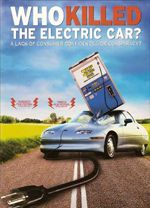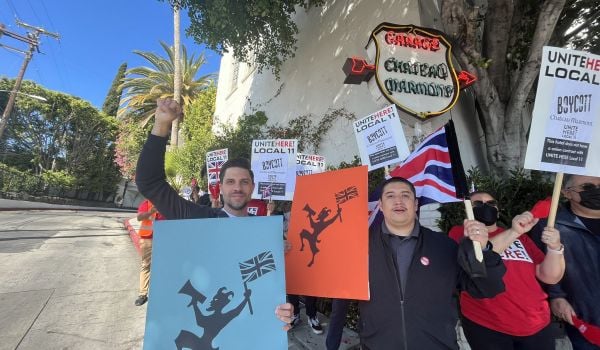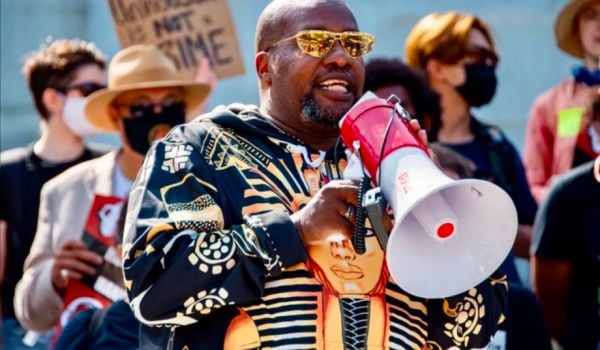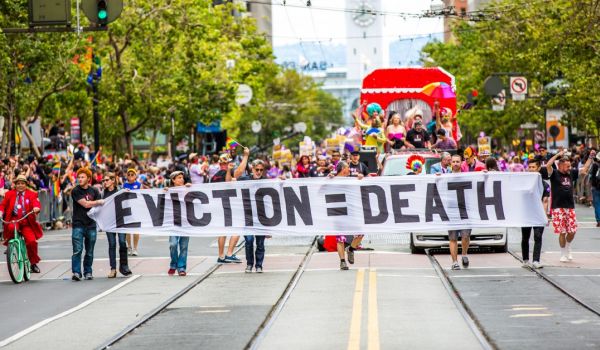As the laugh track of the latest episode of Seinfeld fades out, a video opens with pulsating electric currents and a quick-paced techno track. Slowly, as if being constructed by the very energy represented in the swirling flashing lines of lights and heavy beat, a silver bullet of a car appears. Sleek and new, wheels tucked inside a body looked to be made of the highest-grade aluminum; a woman’s hushed voice emerges from the fading synthesizer. “Is this what all those science fiction writers had in mind?”
It is only in the last five to ten seconds of this television spot that the subject comes into full view. Only seen by the ad makers themselves, and perhaps a few General Motor CEOs, this ad’s futuristic representation of GM’s EV1 was never aired.
During the 1990s, the goal to thrust General Motor’s revolutionary electric car into obscurity was on the minds of oil, auto and federal lobbyists alike. A goal easily accomplished in an atmosphere clouded with doubts of fuel economy regulation’s place in a free market economy.
In the 2006 documentary, Who Killed the Electric Car? Director Chris Paine leads his audience through the events leading to the non-publicized eradication of the extremely efficient electric car. Though many criticize the actual efficiency of the electric car – including questions of battery disposal and infrastructural costs – Paine’s analysis of the federal government’s role in this “murderous” act is spot on. Now with the release of the newly White House-sanctioned regulations set to raise the fleetwide Corporate Average Fuel Economy (CAFE) standards for cars by more than 8 miles per gallon by 2015, the conflict of state versus government regulations on the auto industry has once again reared its ugly head.
On the 39th year of Earth Day, the Transportation Department debuted a new set of gas mileage targets that were green around the edges. Overshooting the benchmarks placed by the Democratic Congress, According to a Congressional Quarterly report, the new CAFE standards would raise “standards for cars to 35.7 mpg” and set the target for vans, sports utility vehicles and smaller pickup trucks at 28.6 mpg. Currently at 27.5 mpg and 22.7 mpg respectively, standards set by this recommendation would pave the way to meet Congress’ ambitious goal of a 35 mpg fleetwide average by 2020.
While these actions come to the pleasant surprise of environmentalists across the country, a controversy that was chiseled on the epitaph of the EV1 has dimmed the lights on any celebrations. With the release of new CAFE standards, The Transportation Department has stood by its position that regulating fuel economy is the federal government’s role, not the concern of individual state governments.
Throughout their history, California has been known to institute tougher emissions standards to thwart smog and pollutants in heavily populated cities such as Los Angeles. In fact, continuing pressure from the State of California helped give birth to the EV1. As many states follow the Golden State’s leading effort to protect the health of city residents, most hope to avoid a federalist smack down from the EPA and Bush administration as they pursue aggressive measures to stymie the ever-growing issue of poor urban air-quality.
In the previously mentioned Congressional Quarterly report, automakers say following California’s emission standards would push a fleetwide average of 36 mpg in just 8 years, rather than the Congressional objective of 1 mpg less in 4 more years. Undoubtedly, the Transportation Department hopes that advocating higher federal standards will discourage states from instituting their own progressive regulations, a hope that will be challenged by lobbyists and lawmakers around the clock.
As Paine’s film points out, the Zero-emissions vehicle mandate in 1990 requiring the production of “zero-emission” vehicles fell at the hands of lobbyists and an uncooperative administration. Being first approved by the California Air Resource Board, and subsequently rejected by the same board after receiving flack from oil and auto lobbies, the beginning of serious energy revolution perhaps could have began decades before Al Gore’s kick of truthful inconvenience, and stricter CAFE standards may have appeared during the 30th Earth Day, rather than the 39th. But unlike the short lived EV1, city and state battles against this current form of federalism will continue until what many science fiction writers actually had in mind does exist: a safe and functioning environment for the cities of the future.
- Evan Miller
The New Argument
















